When it comes to maintaining a productive summer vegetable garden, there are a few simple garden chores that go a long way in helping to keep your plants strong and healthy.
Better yet, those chores also just happen to and keep your garden weed-free, neat and clean all summer too!
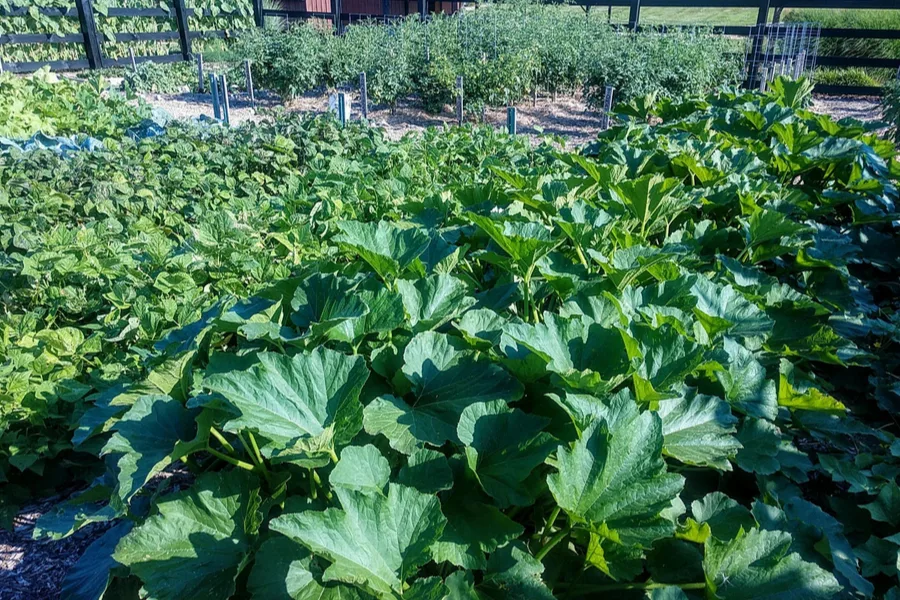
It has been an incredibly hot summer here for our garden. In fact, with nearly 3 straight weeks of 90+ degree days, it’s one of the hottest July’s ever on record.
But even with that extreme heat, it doesn’t mean the garden, or it’s productivity has to suffer. Nor would it if it happened to be a cool or extremely wet season. (Which is exactly what the two previous seasons were here.)
In reality, gardening success relies much more heavily on what you do and don’t do in your garden than it ever does on the weather. And that is exactly what today’s article is all about.
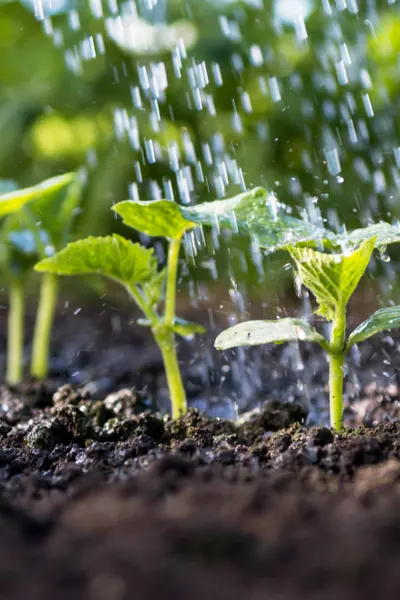
As you will see in the article and garden tour video below, by concentrating on just a few simple summer garden chores, you can keep your garden productive – no matter if it’s hot, dry, rainy, wet – or absolutely perfect weather!
Maintaining A Summer Vegetable Garden – 3 Keys To Success!
#1 Keep Weeds At Bay
Weeds are more than just unsightly in a garden, they also steal valuable nutrients and moisture from vegetable plants.
And those two resources just happen to be incredibly critical in keeping plants productive. Especially during the hot summer months when plants are already stressed by the heat and sun.
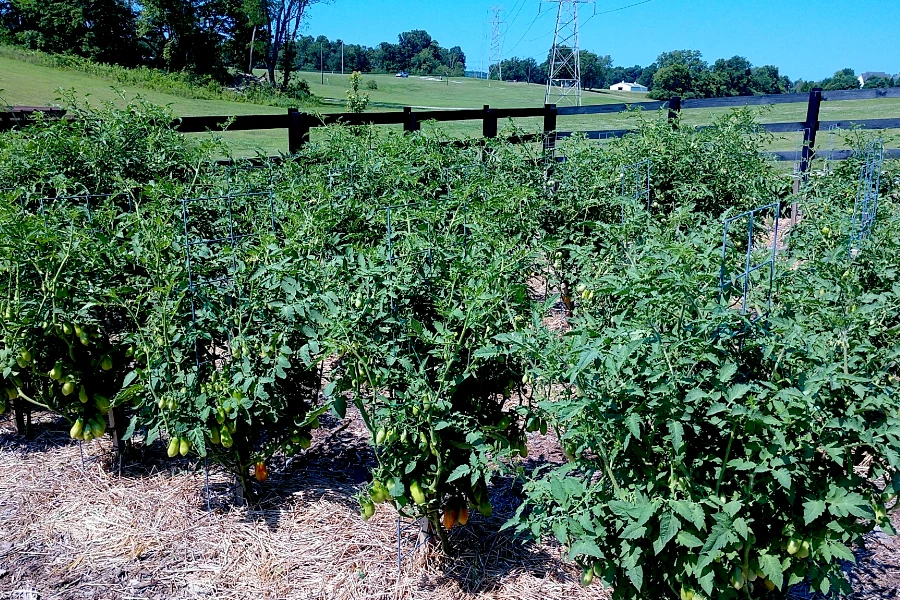
Weeds also are an easy hiding place and breeding ground for pests and disease. Both of which can also devastate crops in mid-summer, just as they begin to produce.
Keeping The Root Zones Free of Weeds
The root zone areas around vegetable plants are the most important of all. For most plants, that means clearing out any and all weeds from 12 to 18″ in diameter around the base of each plant.
This critical “root zone” area of plants is where the roots below the surface gather nutrients. As you will see in today’s video below, keeping this area clear of competing weeds is a must. (If video does not show up in your browser, you can view it here : OWG Summer Garden Chores Video
The best way to do this and keep it cleared is with mulch. Mulching plants with a thick 4″ inch layer of straw, clippings or shredded leaves keeps additional weeds out, and more importantly, moisture in.
And as you will see in the next section, keeping the moisture in is absolutely critical.
#2 Plant Moisture & Watering Smart
The simple fact is vegetable plants need moisture to grow, produce and stay healthy. But supplying moisture is more than just dragging a hose out everyday to water.
Unless you live in an extremely hot climate (i.e. desert), daily watering is usually not needed. And in many cases, it does more harm than good.
Watering too much creates weak plants with shallow roots. And, unfortunately, it also creates more work. How so? Because plants that get used to being watered every day will need to continue to be watered every day!
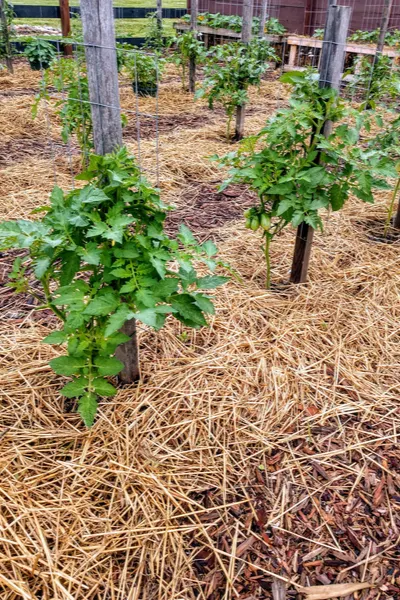
Most folks are surprised when visiting our garden to find out we rarely, if ever water our garden. Instead, we rely on heavy mulching around the plants to keep moisture in. It really does work!
How Not To Water
When it comes to the summer chores of watering the garden, how and when you water is just as important as how much you water.
Vegetable plants should be watered at the soil level, not from above with a sprinkler, or even worse, with a blast from a hose.
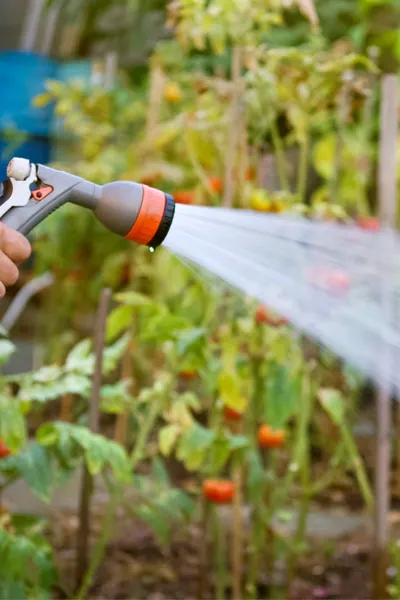
Not only will aerial watering result in less H20 making it to the plants via evaporation, it can also damage foliage as the sun’s rays burn the water droplets as they lay on the plant.
But there is one more issue with what we call spray watering. Watering with a hose and sprayer is amazingly adept at knocking off a plant’s new blooms. And no new blooms means no new fruit and vegetables!
When and if you do have to water, water slowly at the plant base level. This ensures the plant and the roots are getting soaked, and the water can drive deep to get the roots to grow deep.
#3 Pick Regularly
And finally, there is the summer garden chore of harvesting produce. We talk about it often, but one of the biggest mistakes to make is leaving vegetables on the plants too long.
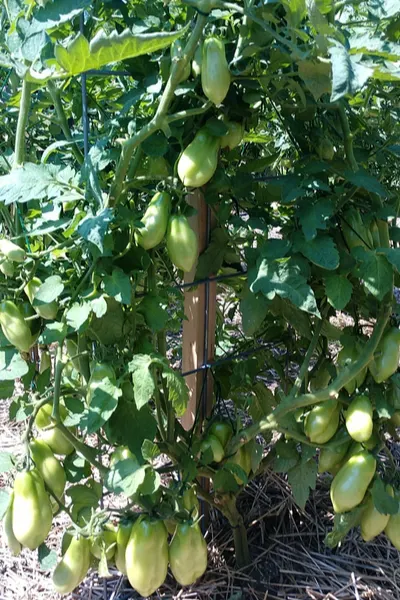
Not only does it result in mushy, overripe fruit, but it also serves as a signal plants to stop producing new blooms. (See : 6 Simple Harvesting Tips)
Vegetable plants such as peppers, cucumbers, zucchini and indeterminate tomatoes slow down new blossom and fruit production when plants become overloaded with fruit.
Instead, they use all of their energy and resources to ripen the existing fruit load. To keep plants producing to their fullest potential, pick fruit and vegetables as soon as they are ready.
Here is to keeping your garden going strong and looking great all summer long with a few simple garden chores! Happy Gardening Jim and Mary
Jim and Mary Competti have been writing gardening, DIY and recipe articles and books for over 15 years from their 46 acre Ohio farm. The two are frequent speakers on all things gardening and love to travel in their spare time.
As always, feel free to email us at thefarm@owgarden.com with comments, questions, or to simply say hello! You can sign up for our free email list in the subscribe now box in the middle of this article. Follow us on Facebook here : OWG Facebook. This article may contain affiliate links.
